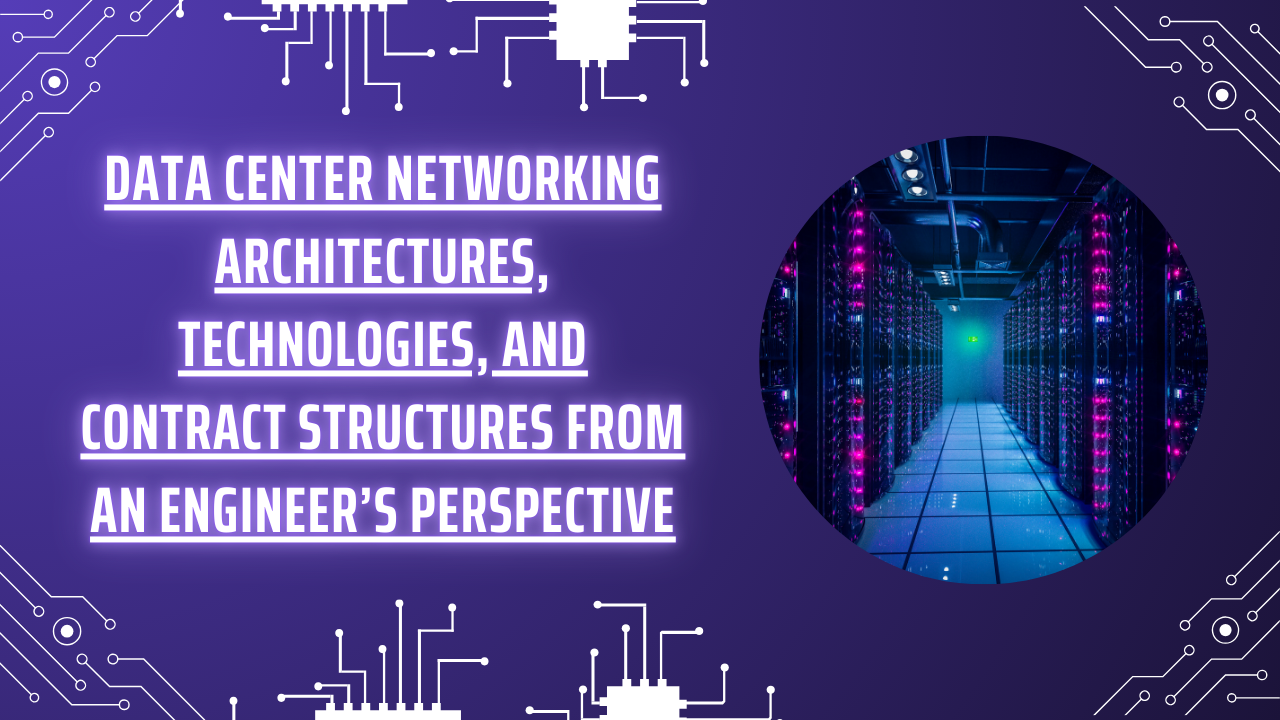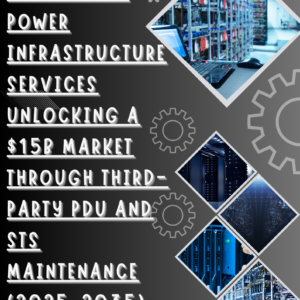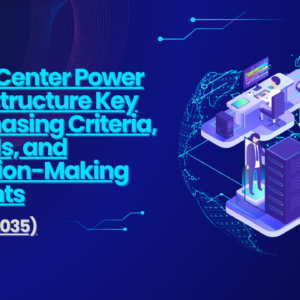1. Executive Summary
-
- Overview of data center networking technologies
- Key trends in network architectures, Ethernet vs InfiniBand, and optical solutions
- $XXB projected market value for data center networking technologies
Table: Data Center Networking Technologies Market Overview
2. Network Architectures in Data Centers
-
- Overview of modern data center network architectures (Leaf-Spine, Clos, etc.)
- Importance of scalability, redundancy, and low latency
- Evolving architectures to support AI and ML workloads
Chart: Comparison of Leaf-Spine vs. Traditional Network Architectures
3. Ethernet vs. InfiniBand in Data Centers
-
- Key differences in performance, scalability, and use cases
- Why Ethernet dominates most data centers
- When to consider InfiniBand: HPC and low-latency environments
- Bandwidth, latency, and power consumption comparisons
Table: Performance Comparison: Ethernet vs InfiniBand in Data Center Use Cases
4. Optics and Transceivers: Enabling High-Speed Connectivity
-
- Role of optical transceivers in data centers (QSFP, SFP, etc.)
- Current trends in optical networking: 400G, 800G, and beyond
- Transceiver types and their use cases for AI, ML, and hyperscale data centers
- Impact of optics on data center efficiency and power consumption
Chart: Transceiver Adoption Trends in Data Centers (100G, 400G, 800G)
5. Switches in Data Center Networking
-
- Overview of data center switching technologies (Layer 2/3 switching)
- Key players in data center switching (Cisco, Arista, Juniper, etc.)
- The role of white-box switches and SDN (Software-Defined Networking)
- Switch performance benchmarks for hyperscale and enterprise data centers
Table: Data Center Switch Performance Benchmarking by Major Vendors
6. How Networking Contracts Are Structured in Data Centers
-
- Contract structures: Hardware procurement, installation, and maintenance
- Service-level agreements (SLAs) for network uptime and latency
- Vendor lock-in strategies and managing multi-vendor environments
- Pricing models: CapEx vs. OpEx considerations in networking
Chart: Typical SLA Breakdown for Data Center Networking Contracts
7. Competitive Analysis: Arista Networks (ANET) vs. Cisco (CSCO)
-
- Overview of Arista and Cisco’s positioning in the data center networking market
- Strengths and weaknesses: Hardware performance, software capabilities, and ecosystem
- Market share analysis: Arista’s growth in cloud networking vs. Cisco’s enterprise dominance
- Innovation and future technology roadmaps for both vendors
Table: Arista vs. Cisco: Feature-by-Feature Comparison of Networking Solutions
8. Market Trends and Future Outlook
-
- Growing importance of high-speed networking in AI and ML workloads
- Rise of 800G optics and beyond: Challenges and opportunities
- Impact of disaggregated architectures and white-box networking on traditional vendors
- The future of Ethernet vs. InfiniBand in next-gen data centers
Chart: Projected Growth of Data Center Networking Market (2025-2035)
9. Conclusion and Strategic Insights
-
- Summary of key insights for engineering teams and data center decision-makers
- Strategic recommendations for selecting the right network technologies
- Risks and opportunities in the evolving data center networking space
10. Appendices
- Glossary of terms related to data center networking
- Additional data on market share, performance benchmarks, and technology roadmaps
- Transceiver and switch models: Specifications and use cases
#DataCenterNetworking #EthernetVsInfiniBand #LeafSpineArchitecture #OpticalNetworking #Transceivers #SwitchingTechnologies #Layer2Switching #Layer3Switching #AristaVsCisco #NetworkingSLAs #CapExVsOpEx #AIandMLNetworking #HyperscaleDataCenters #400GOptics #800GOptics #SDN #WhiteBoxSwitches #HPCNetworking #DataCenterTrends #NetworkingEfficiency





